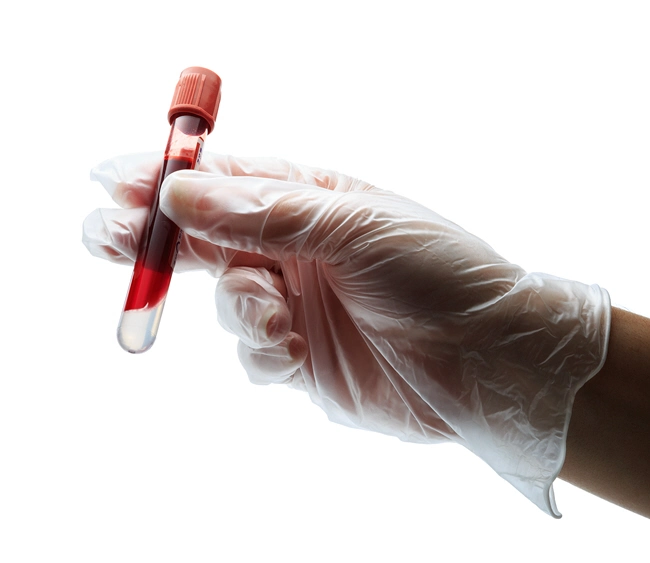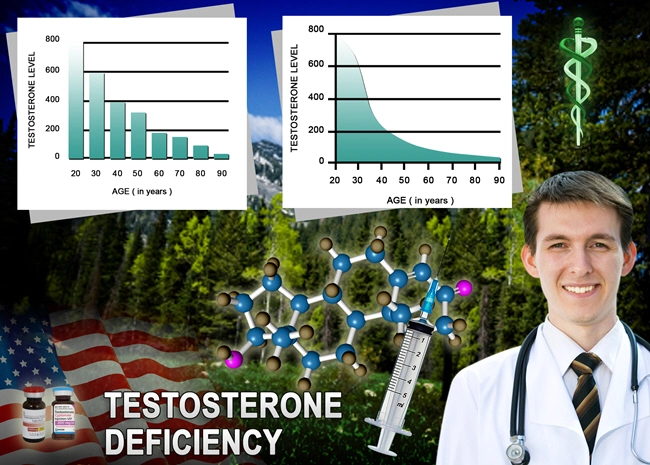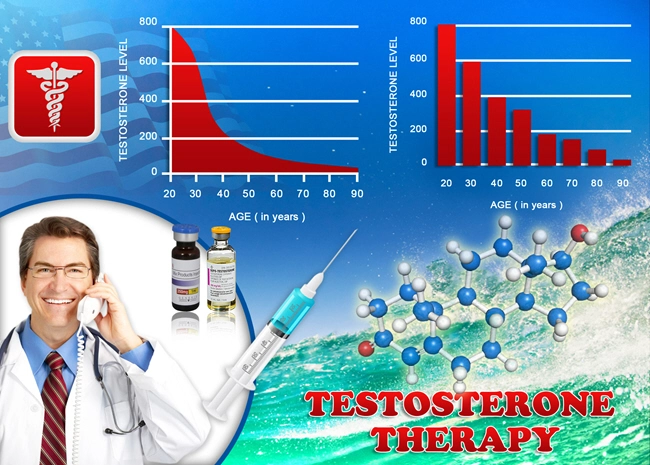
Introduction
Testosterone undecanoate, a long-acting injectable form of testosterone, has become increasingly popular among American men seeking to address hypogonadism and improve their overall quality of life. While the benefits of testosterone replacement therapy (TRT) are well-documented, concerns have been raised about its potential impact on kidney function. This article aims to provide a comprehensive overview of the effects of testosterone undecanoate on kidney health in American men, drawing upon the latest research and clinical insights.
Understanding Testosterone Undecanoate
Testosterone undecanoate is a synthetic version of the primary male sex hormone, testosterone. It is administered via intramuscular injection, typically every 10-14 weeks, due to its long half-life. This formulation allows for more stable testosterone levels compared to shorter-acting alternatives, making it a preferred choice for many men undergoing TRT.
Kidney Function and Testosterone
The kidneys play a crucial role in maintaining overall health, filtering waste products from the blood and regulating fluid and electrolyte balance. Research has shown that testosterone levels can influence kidney function, with both low and high levels potentially impacting renal health.
Effects of Testosterone Undecanoate on Kidney Function
Several studies have investigated the relationship between testosterone undecanoate and kidney function in American men. A 2020 study published in the Journal of Urology found that men receiving testosterone undecanoate therapy did not experience significant changes in estimated glomerular filtration rate (eGFR), a key indicator of kidney function. This suggests that, in most cases, testosterone undecanoate does not adversely affect kidney health.
However, it is important to note that individual responses to TRT can vary. Some men, particularly those with pre-existing kidney conditions, may be more susceptible to potential renal effects. A 2018 study in the American Journal of Kidney Diseases reported that a small subset of men with chronic kidney disease experienced a decline in kidney function while on testosterone undecanoate therapy. This highlights the importance of close monitoring and individualized treatment plans for men with compromised renal health.
Monitoring Kidney Function During TRT
For American men considering or currently undergoing testosterone undecanoate therapy, regular monitoring of kidney function is essential. Baseline assessments of eGFR and serum creatinine levels should be obtained before initiating TRT, with follow-up testing every 3-6 months during treatment. Any significant changes in these markers should prompt further evaluation and potential adjustment of the treatment regimen.
Mitigating Potential Risks
To minimize the risk of adverse renal effects, men on testosterone undecanoate therapy should maintain a healthy lifestyle, including regular exercise, a balanced diet, and adequate hydration. Avoiding nephrotoxic medications and managing other health conditions, such as diabetes and hypertension, can also help support optimal kidney function.
Conclusion
In conclusion, the available evidence suggests that testosterone undecanoate therapy is generally safe for kidney function in most American men. However, individual responses may vary, and men with pre-existing renal conditions may require closer monitoring. By working closely with healthcare providers and adhering to recommended monitoring protocols, men can safely benefit from the advantages of testosterone undecanoate while protecting their kidney health. As research in this field continues to evolve, ongoing dialogue between patients and healthcare professionals will be crucial in optimizing TRT outcomes and ensuring the long-term well-being of American men.
Contact Us Today For A Free Consultation
Dear Patient,
Once you have completing the above contact form, for security purposes and confirmation, please confirm your information by calling us.
Please call now: 1-800-380-5339.
Welcoming You To Our Clinic, Professor Tom Henderson.

- Testosterone Undecanoate: Enhancing Athletic Performance in American Males [Last Updated On: February 21st, 2025] [Originally Added On: February 21st, 2025]
- Testosterone Undecanoate: Benefits and Risks for American Men's Health [Last Updated On: March 17th, 2025] [Originally Added On: March 17th, 2025]
- Testosterone Undecanoate: A Breakthrough in Andropause Treatment for American Men [Last Updated On: March 17th, 2025] [Originally Added On: March 17th, 2025]
- Optimizing Testosterone Undecanoate Therapy with Diet and Exercise for American Men [Last Updated On: March 18th, 2025] [Originally Added On: March 18th, 2025]
- Testosterone Undecanoate: A Promising Treatment for Chronic Fatigue in American Men [Last Updated On: March 18th, 2025] [Originally Added On: March 18th, 2025]
- Testosterone Undecanoate: Balancing Medical Needs and Cultural Expectations in American Males [Last Updated On: March 19th, 2025] [Originally Added On: March 19th, 2025]
- Testosterone Undecanoate Improves Sleep Quality in American Males with Hypogonadism [Last Updated On: March 20th, 2025] [Originally Added On: March 20th, 2025]
- Testosterone Undecanoate Therapy: Importance of Regular Monitoring for American Men [Last Updated On: March 20th, 2025] [Originally Added On: March 20th, 2025]
- Testosterone Undecanoate: Long-Acting Treatment for Hypogonadism in American Males [Last Updated On: March 21st, 2025] [Originally Added On: March 21st, 2025]
- Testosterone Undecanoate: A Solution for Muscle Loss in Aging American Males [Last Updated On: March 21st, 2025] [Originally Added On: March 21st, 2025]
- Testosterone Undecanoate: A Promising Tool for Weight Management in American Men [Last Updated On: March 21st, 2025] [Originally Added On: March 21st, 2025]
- Testosterone Undecanoate: Safety, Efficacy, and Management in American Men with Hypogonadism [Last Updated On: March 22nd, 2025] [Originally Added On: March 22nd, 2025]
- Testosterone Undecanoate: Effects on Hair Growth in American Males with Hypogonadism [Last Updated On: March 22nd, 2025] [Originally Added On: March 22nd, 2025]
- Testosterone Undecanoate: Enhancing Health and Vitality in American Men [Last Updated On: March 22nd, 2025] [Originally Added On: March 22nd, 2025]
- Testosterone Undecanoate: Impacts on Skin Health in American Males [Last Updated On: March 22nd, 2025] [Originally Added On: March 22nd, 2025]
- Testosterone Undecanoate: Enhancing Cognitive Function in American Men with Hypogonadism [Last Updated On: March 23rd, 2025] [Originally Added On: March 23rd, 2025]
- Testosterone Undecanoate Efficacy and Safety in American Males: Clinical Trial Review [Last Updated On: March 23rd, 2025] [Originally Added On: March 23rd, 2025]
- Testosterone Undecanoate's Impact on Joint Health in American Men: Benefits and Risks [Last Updated On: March 23rd, 2025] [Originally Added On: March 23rd, 2025]
- Testosterone Undecanoate's Impact on Immune Function in American Males: A Comprehensive Review [Last Updated On: March 23rd, 2025] [Originally Added On: March 23rd, 2025]
- Testosterone Undecanoate's Impact on Vision: Benefits and Risks for American Men [Last Updated On: March 24th, 2025] [Originally Added On: March 24th, 2025]
- Testosterone Undecanoate: A Promising Treatment for Osteoporosis in American Men [Last Updated On: March 24th, 2025] [Originally Added On: March 24th, 2025]
- Testosterone Undecanoate's Impact on Respiratory Health in American Men with Hypogonadism [Last Updated On: March 24th, 2025] [Originally Added On: March 24th, 2025]
- Testosterone Undecanoate: Enhancing Metabolic Health in American Males with Hypogonadism [Last Updated On: March 24th, 2025] [Originally Added On: March 24th, 2025]
- Testosterone Undecanoate's Impact on Dental Health in American Males: A Review [Last Updated On: March 24th, 2025] [Originally Added On: March 24th, 2025]
- Testosterone Undecanoate's Impact on Cholesterol Levels in American Men: A Comprehensive Review [Last Updated On: March 24th, 2025] [Originally Added On: March 24th, 2025]
- Testosterone Undecanoate: Dispelling Myths and Enhancing Men's Health [Last Updated On: March 24th, 2025] [Originally Added On: March 24th, 2025]
- Testosterone Undecanoate: Tailoring TRT for Diverse American Male Demographics [Last Updated On: March 24th, 2025] [Originally Added On: March 24th, 2025]
- Testosterone Undecanoate's Impact on Digestive Health in American Males: Insights and Management [Last Updated On: March 24th, 2025] [Originally Added On: March 24th, 2025]
- Economic Impact of Testosterone Undecanoate on Healthcare Costs for American Men with Hypogonadism [Last Updated On: March 25th, 2025] [Originally Added On: March 25th, 2025]
- Testosterone Undecanoate: Impacts on Longevity and Male Health [Last Updated On: March 26th, 2025] [Originally Added On: March 26th, 2025]
- Testosterone Undecanoate: Enhancing Injury Recovery in American Males [Last Updated On: March 26th, 2025] [Originally Added On: March 26th, 2025]
- Testosterone Undecanoate's Impact on Liver Health in American Males: A Comprehensive Review [Last Updated On: March 26th, 2025] [Originally Added On: March 26th, 2025]
- Testosterone Undecanoate: Enhancing Fertility in American Men with Hypogonadism [Last Updated On: March 26th, 2025] [Originally Added On: March 26th, 2025]
- Testosterone Undecanoate: Enhancing Emotional Well-being in American Males [Last Updated On: March 26th, 2025] [Originally Added On: March 26th, 2025]
- Testosterone Undecanoate Enhances Cognitive Function in American Men: Research and Implications [Last Updated On: March 26th, 2025] [Originally Added On: March 26th, 2025]
- Testosterone Undecanoate: Enhancing Life Quality in American Male Cancer Survivors [Last Updated On: March 26th, 2025] [Originally Added On: March 26th, 2025]
- Testosterone Undecanoate: A Promising Therapy for Chronic Pain in American Males [Last Updated On: March 26th, 2025] [Originally Added On: March 26th, 2025]
- Testosterone Undecanoate: Benefits, Side Effects, and Management Strategies for American Men [Last Updated On: March 26th, 2025] [Originally Added On: March 26th, 2025]
- Testosterone Undecanoate: Benefits and Management for American Men with Hypogonadism [Last Updated On: March 27th, 2025] [Originally Added On: March 27th, 2025]
- Testosterone Undecanoate's Impact on Blood Pressure in American Men: A Comprehensive Review [Last Updated On: March 27th, 2025] [Originally Added On: March 27th, 2025]
- Testosterone Undecanoate: Enhancing Sexual Health in American Men with Low Testosterone [Last Updated On: March 27th, 2025] [Originally Added On: March 27th, 2025]
- Testosterone Undecanoate Boosts Endurance in American Men: Mechanisms and Benefits [Last Updated On: March 27th, 2025] [Originally Added On: March 27th, 2025]
- Testosterone Undecanoate: A Promising Therapy for Diabetes Management in American Males [Last Updated On: March 27th, 2025] [Originally Added On: March 27th, 2025]
- Testosterone Undecanoate: A Promising Treatment for Allergies in American Males [Last Updated On: March 27th, 2025] [Originally Added On: March 27th, 2025]
- Testosterone Undecanoate: Managing Stress in American Males [Last Updated On: March 28th, 2025] [Originally Added On: March 28th, 2025]
- Testosterone Undecanoate: Enhancing Veterans' Health with Long-Acting Therapy [Last Updated On: March 28th, 2025] [Originally Added On: March 28th, 2025]
- Testosterone Undecanoate's Impact on Hearing in American Males: A New Frontier in Hormone Therapy [Last Updated On: March 28th, 2025] [Originally Added On: March 28th, 2025]
- Testosterone Undecanoate Enhances Nail Health in American Males: A Comprehensive Study [Last Updated On: March 29th, 2025] [Originally Added On: March 29th, 2025]
- Testosterone Undecanoate: Dosage Adjustments for American Men's Optimal Hormone Levels [Last Updated On: March 30th, 2025] [Originally Added On: March 30th, 2025]
- Testosterone Undecanoate Enhances Skin Elasticity in American Men: A Comprehensive Review [Last Updated On: March 31st, 2025] [Originally Added On: March 31st, 2025]









